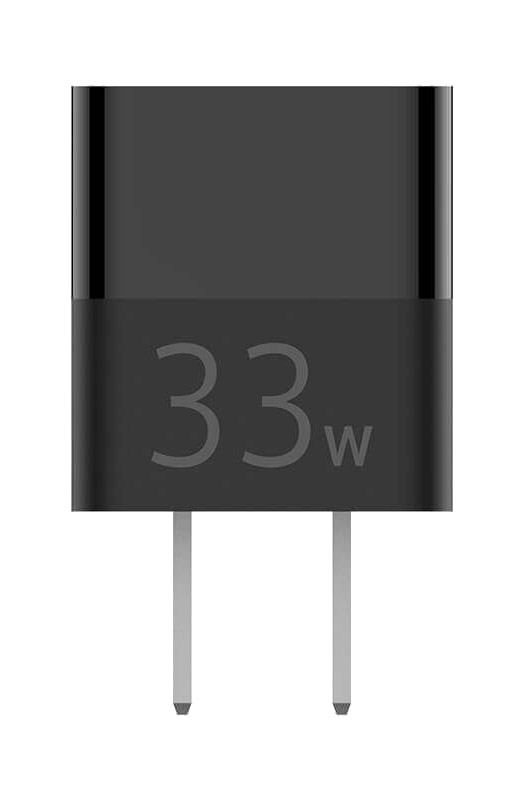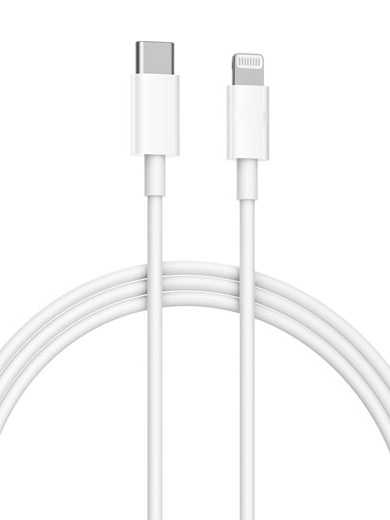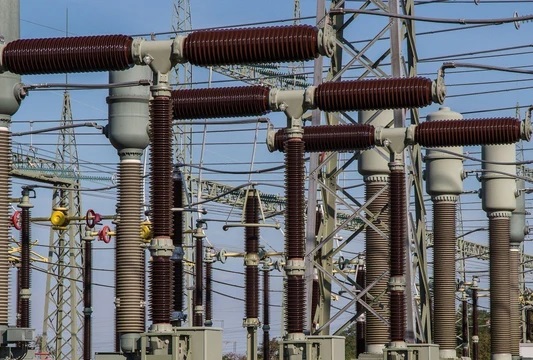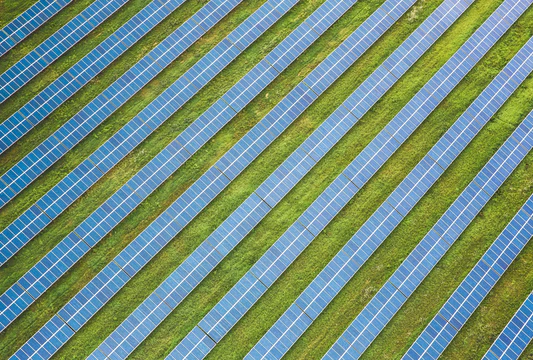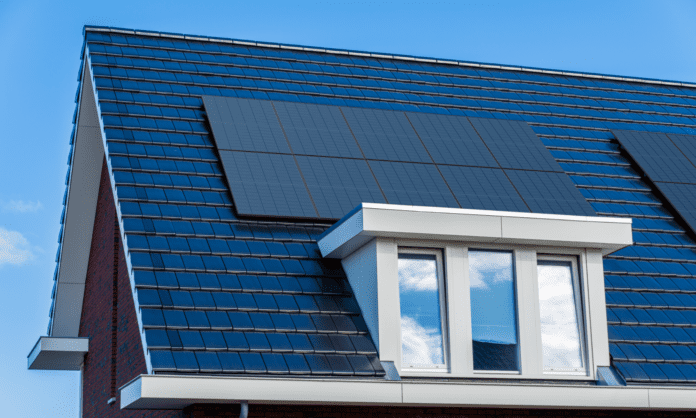Solar energy is a promising renewable energy resource that has witnessed significant growth due to technological advancements and government subsidies. However, as the solar industry continues to evolve, questions arise about its role in maintaining the reliability of our electricity grid.
On one hand, harnessing solar power could lead to considerable economic benefits while also improving sustainability. On the other hand, achieving reliability while taking full advantage of this clean energy option can be challenging.
This article delves into the potential advantages and drawbacks of incorporating solar energy into grid reliability. From increasing investment and meeting renewable portfolio standards to addressing concerns about intermittent power supply and infrastructure maintenance, we will explore the many aspects of this complex and crucial topic.
Understanding Grid Reliability
The provision of dependable electricity production is crucial for expanding access to electricity and facilitating a seamless shift towards cleaner energy sources. A stable flow of electricity, voltage management, monitoring, and emergency response services are all key functions of the power grid. Any disruptions in the availability of power could have dire consequences, particularly for public safety if not managed effectively.
To ensure consistent grid operations, maintenance of systems and regular equipment upgrades are necessary for utilities. These measures enable them to handle a range of weather conditions and fluctuations in demand. Moreover, utilities may deploy sophisticated technologies such as advanced analytics or self-healing networks, which are effective in making power supply more secure during blackouts and cascading failures.
In summary, the reliability of the power grid is integral for sustainable electricity generation, and necessitates appropriate measures for its upkeep.
What Makes Grid Reliability Vital?
In modern society, grid reliability is of utmost importance. Electricity has become a requirement for various aspects of our lives, such as lighting and access to resources like air conditioning, freezers, computers, and televisions. Inability to access stable energy sources would significantly hinder our daily activities and comfort.
Moreover, a functioning grid contributes to the growth of the economy by enabling businesses to operate continually without the burden of outage-related problems and other energy issues that could disrupt their operations. By maintaining a steady grid of energy sources, we ensure both day-to-day ease and long-term economic stability.
The Rise of Renewable Energy
The world is currently undergoing an energy revolution. In 2021, renewables provided a new record of 10% of global electricity generation, up from 6.5% in 2020. Wind and solar energy have been the driving forces behind this increase, with various countries worldwide investing heavily in renewable sources such as wind turbines and solar panels.
Renewables are a decentralized source of energy, which means that power doesn't have to originate from large centralized power stations, but rather can be generated locally by individuals, households, or businesses using their wind turbines or solar panels. This means that local communities can become self-sufficient regarding energy generation, reducing dependence on large-scale power plants and fostering job creation within their community. Furthermore, this shift contributes to economic development through increased energy efficiency.
Finally, renewable energy has proved less expensive than traditional fossil fuels in the long run, implying that companies could save money down the line and reduce their environmental impact by switching over.
The transition to renewable energy is already underway, but more work needs to be done if we are to make a significant impact on our environment and decrease our reliance on fossil fuels. With new technologies emerging, and countries worldwide investing significantly in renewables, there is never a better time to make the switch.
The Benefits of Solar Power to Grid Reliability
Renewable and Sustainable Energy
Solar power is a sustainable and renewable energy source that can regenerate naturally without human assistance, setting it apart from finite resources like fossil fuels that will eventually deplete over time. As society seeks to shift away from unsustainable and polluting energy sources, solar energy will play a crucial role in meeting future energy needs. Advancements in technology and increasing investment will lead to wider adoption and viability of this renewable power.
Clean and Eco-Friendly Option
Harnessing the sun's power is an eco-friendly and renewable energy solution, without creating emissions or pollutants like the burning of fossil fuels such as coal and oil. By reducing the reliance on these sources, solar power helps improve air quality and preserves public health. As a result, solar energy provides an economical option for households, businesses, and the industry, with low maintenance costs, reliable performance, and efficient energy generation available from virtually any sunlit location. Many countries reduce their carbon footprint and provide clean energy to their citizens through solar power adoption.
Proven Reliability
Solar power is a dependable and efficient energy source, owing to its consistency in power generation. Unlike wind or hydro power, the sun's energy is continuously available, leading to a more stable supply of electricity. This consistency is valuable in supplementing traditional energy sources and enabling solar power to act as a steady source of energy for electricity grids. Solar power's reliability has made it a cost-effective alternative to more expensive electricity sources, offering opportunities for homeowners and businesses to save money.
Rooftop Solar Helps the Grid Keep Powering
Rooftop solar panel systems offer a range of benefits to the electrical grid by helping to maintain its smooth operation. Home solar systems generate their own power, reducing demand on the grid during peak times and thereby stabilizing and preserving its reliability. This feature is especially valuable in regions where demand on the grid outstrips supply during certain seasons or times of the day due to population growth or extreme weather events that strain local infrastructure.
Balancing Supply Fluctuations
Solar energy production is not subject to environmental factors and therefore makes it possible to balance out energy supply fluctuations effectively. As a result, solar systems generate electricity dependably, whether or not there is direct sunlight. Widespread adoption of rooftop solar panels can further improve overall grid performance and reliability.
Enhancing Energy Resiliency
As the impact of climate change on our planet grows, implementing innovative solutions to enhance energy resiliency is critical. Using solar + storage technology is one such solution that can offer an effective approach to increased protection in extreme weather events. Bringing together two complementary renewable energy sources, solar power and battery storage systems, enables individuals, businesses, and utility-scale operations in building and maintaining resilient grids, providing continued access to clean energy during interruptions caused by uncertainty related to ever-changing weather patterns.
It’s All About Independence
Switching to solar energy is ideal for those seeking to reduce energy expenses while moving towards greater global energy independence. Installing a solar power system with a backup power source reduces electricity costs, freeing up funds to be used elsewhere. Having a reliable backup source of power enhances the convenience and reliability offered by solar energy. Switching to solar demonstrates a commitment to clean sources of energy and helps us move towards greater energy independence worldwide. It's an essential step in going green and becoming more sustainable.
Solar Power is an Affordable Resource
Advancements in technology and decreasing solar panel costs have made solar power a viable energy option for homes and businesses. This makes it a more cost-effective choice when compared to fossil fuels that have increased in price due to dwindling supplies and increasing demand. Solar power is now a much more affordable option in the long run, resulting in significant savings on energy bills compared to traditional sources. With the added benefit of being a clean and renewable energy source, solar energy investment becomes a viable option to enhance the environment.
Versatility of Solar Power
Solar power is a versatile energy source that has numerous applications. In industrial settings, solar thermal systems can harness the sun's radiation to produce heat for industrial applications such as water or space heating. On the other hand, for households, Solar Photovoltaic (PV) panels have grown increasingly popular, allowing the households to reduce their electricity bills or go completely off-grid. In this application, PV panels collect sunlight that is then converted into electricity used in homes for appliances or lighting. Solar power can also be used for outdoor activities or camping where traditional power sources are not available. This high versatility offers an economically viable and renewable energy option while helping reduce carbon footprint.
The Challenges of Solar Power to Grid Reliability
Meeting Renewable Portfolio Standards
In meeting the Renewable Portfolio Standards, solar power presents a significant challenge to grid reliability due to its intermittent nature. Solar energy providers need to design flexible and dynamic power usage solutions that work within existing system architectures for the grid to remain reliable. Additionally, increased energy storage technology may be necessary to store cyclical power from renewables, such as solar and wind, for future use. Smart investments in such technologies can promote sustainable development of renewable energy sources while maintaining a reliable grid.
Intermittency Issues and Infrastructure Maintenance Costs
Despite the promise of renewable energy, solar power's integration to the grid presents complex challenges such as intermittent output levels and infrastructure maintenance costs. Intermittency issues arise when changes in weather conditions like overcast skies prevent solar panels from producing energy at certain times. Therefore, traditional energy sources generated from fossil fuels must be available to meet demand. Infrastructure maintenance costs- such as additional equipment installations and supplemental backup batteries- are considerably higher compared to conventional energy sources, often imposing an extra burden on utilities and their customers. Despite these challenges, technological advancements continue to expand the possibilities for solar power as a viable integrated component of the low-carbon future.
Considering Solar Energy? Get in Touch with Us!
Solar power presents numerous benefits, making it an attractive energy source for enhancing grid reliability. Nevertheless, certain challenges need to be tackled initially. The continuous progression in technology and the better comprehension in utilizing green energy sources such as solar into the existing grids increase hopes of achieving elevated levels of sustainability and reliability, and with lesser disruptions due to natural disasters or extreme weather conditions in the future!
If you're considering switching to solar, we can provide support. We have a diverse range of products to suit your needs, whether you require a portable solar generator or something else. Contact us now to find out more about the options we offer!



















